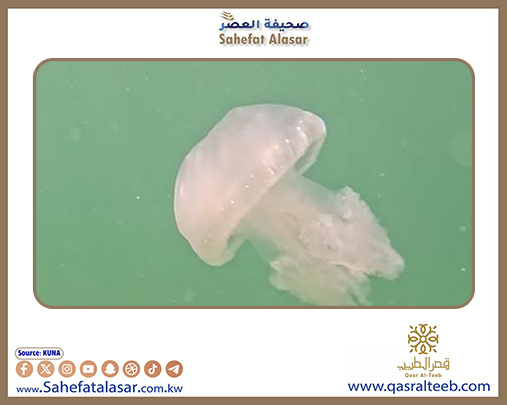


Walid Al-Fadhel, head of the Kuwait Dive Team (an environmental volunteer organization), stated that sharks and jellyfish (locally known as "Al-Doul") are increasingly spotted in Kuwait's waters during summer months due to rising sea temperatures.
Marine Life Distribution Patterns:
Sharks predominantly inhabit northern muddy areas, while less dangerous reef sharks appear in southern waters
Historical shark presence plays vital role in marine ecosystem balance
Current threats: 20-30% shark population decline due to human activities and fishing violations
Conservation Efforts:
The Kuwait Dive Team has conducted multiple rescue operations in Kubbar Island and Kuwait Bay, saving sharks entangled in abandoned fishing nets since its establishment.
Jellyfish Phenomenon (June-July Peak):
Occasionally force desalination plant shutdowns due to massive swarms
Special nets installed at filtration systems to protect water desalination
Non-lethal but can sting; protective swimwear recommended
Serve as primary food source for sea turtles
Public Safety Advisory:
Avoid swimming in jellyfish-concentrated areas
Wear full-body swimwear for protection
Note: Local jellyfish species are not deadly
Ecological Importance:
"Both sharks and jellyfish are integral to our marine ecosystem," Al-Fadhel told KUNA, emphasizing that while jellyfish may cause temporary inconveniences, they maintain biological balance as turtle food sources.
The report highlights Kuwait's unique marine biodiversity while addressing seasonal environmental challenges and conservation needs in the Arabian Gulf waters.
